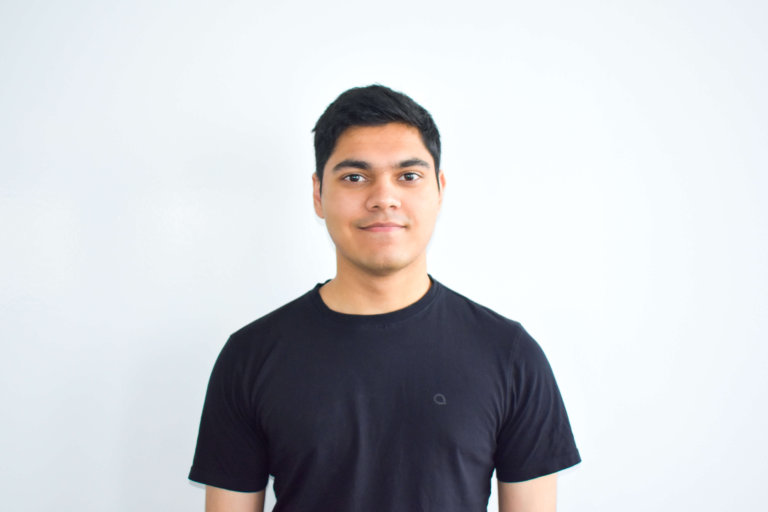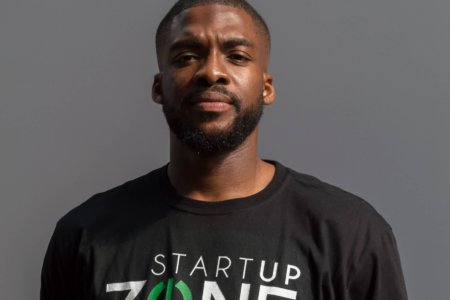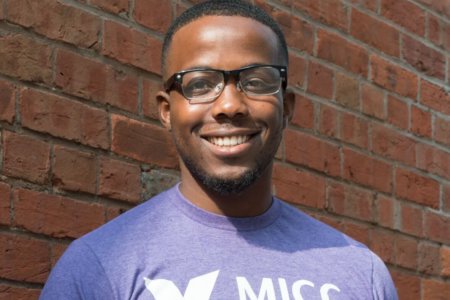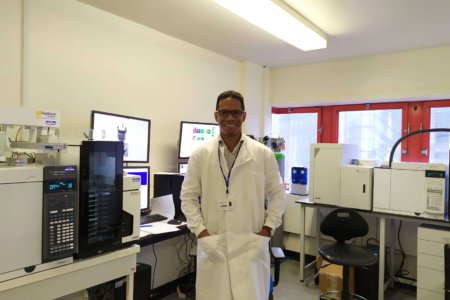
Aasim Sani comes from Nagpur, a small town in Central India and has just recently graduated from Drexel University in Philadelphia with a major in Entrepreneurship and Innovation. Having already come so far and accomplished so much, Mr. Sani can add another accolade to his resume: As a young adult he’s made it to Forbes list of 30 under 30 as one of the cofounders of Orai — a public speaking solution app he helped create using AI technology.
During his downtime, he enjoys side hobbies like long-distance cycling and mountaineering, mixing music and coding. We sat down to have a chat with Aasim Sani about public speaking and advice on how to overcome anxiety. We are all ears.
What spurred you to start Orai? Is there a story behind your inspiration to start this app for public speaking?
When I came to the US four years ago, I thought that communicating here wouldn’t be too difficult since I grew up studying and speaking English along with watching Hollywood movies. The fact is — even though I was fluent in the language and all the technical ways, I was far from fluent on a more culturally-oriented perspective.

A mobile app that replaces a human speech coach with the benefits of being able to practice public speaking anywhere. Source: Aasim Sani
Not being able to speak confidently and expressively to people — in public and in interviews — was holding me back both personally and professionally. I tried books, online courses, “Toastmasters,” and then finally I got help from a speech coach who was also a friend.
My co-founders and I were facing the same issues: a speech coach is very expensive, although the feedback I got from him was very helpful. As my friends and I were students with an interest in AI, we thought why not use it to help more people get guidance on their public speaking. The idea stuck with us, and this resulted in the Orai app.
What are the psychological elements in public speaking? How do you overcome anxiety?
Public speaking itself is fundamentally the art and science of being heard. It’s part persuasion and part acting. It’s a core matter of human psychology that dives into the interpersonal part of public speaking which is more technical.
For an individual, I think the psychological elements of public speaking are largely about managing confidence and anxiety — both of which are specific to people. It’s not just a general feeling that everyone has, some people may have anxiety triggered when public speaking in a huge crowd or simply being in the spotlight. It’s unique to everyone.
My overall advice about anxiety is to try and find out what precisely is hindering your confidence as a public speaker. From there, practice the appropriate techniques that you can use to change your perception of anxiety caused by public speaking.
I personally try to make sure I am always well-prepared, I practice with the Orai app at least three to five times, and prepare everything in advance. Additionally, I always research my audience and their interests which helps me think of them as “friends” I know. In regards to confidence, I’d say it’s simple — most perceivable confidence is either temporary or fake.
What plans do you have with your degrees from Drexel University? How would it benefit the development of Orai?
I graduated this year from Drexel University’s Charles D Close School of Entrepreneurship with a Bachelors in Entrepreneurship and Innovation, and minors in Marketing, Computer Science and Health Innovations. Having worked on Orai throughout my undergraduate career, I tried to cater the selection of my classes to match the challenges Orai was facing at the time. I was able to get a wide variety of experiences from taking classes in everything from leadership theory to digital media marketing. These helped me a lot with my public speaking solution app.
4 years ago, I started working with @paritoshgupta_ , @DanishDhamani, and the @OraiApp team. Back then, I couldn’t even imagine that we’d be in #ForbesUnder30.
I haven’t been happier to be wrong. Thanks to every mentor, friend, and user who supported us. https://t.co/fCat4FMSiY
— Aasim Sani (@aasimsani) December 1, 2020
What was the reason for you to juggle your studies at uni and work on the public speaking solution app at the same time?
We are backed by really amazing investors: Comcast Ventures, Menlo VC and Bertelsmann Digital Media Investments, to name a few. The biggest reason to continue studies while working on Orai — despite the backing of all these big companies — is that the education, opportunities, and mentorship I received would be something valuable that I wouldn’t be able to get outside.
I wouldn’t have even met my co-founders had it not been for my college’s assistant dean offering an opportunity to sponsor a few students to go to a seminar. We wouldn’t have even been able to make the application since my co-founders and I won college-level business plan competitions.

Aasim Sani, cofounder of Orai has blended AI — the innovative future in technology — for helping you overcome public speaking anxiety. Source: Aasim Sani
What makes Orai stand out from people who coach you with public speaking? What are some of the things you think AI has the benefit of, instead of human interaction?
There are lots of benefits to using Orai. One of them being a provider to a unique opportunity to a large number of people who usually cannot afford to get help with public speaking whether it be money or access to resources. The AI allows people to not only practice privately without judgement or fear, but also in an objective way at nearly 30 times lower the price than a public speaking coach.
Do you have any long term plans to further develop Orai or branch into other ventures? Where do you see yourself in the next five years?
At this point, the pandemic has changed the world so much that I don’t know what the future holds. My hopes are to grow Orai further and make it thrive as the solution for public speaking. But on a more personal note, I do see myself moving on to start my own company in the next five years or so.
Where do you enjoy long-distance cycling in the US?
The outside areas in Philadelphia have some very beautiful cycling routes which are friendly enough for amateurs and professionals and mostly around the city. I love the Schuylkill Yards trail for a casual cycle.
What advice do you have for international students looking to study abroad?
Studying abroad has many amazing benefits and its fair share of challenges. I’d advise that you see moving to a foreign place as an excuse to make a new and better life and version of yourself. This is something I have had to learn to do moving from place to place, and it has paid back in magnitudes.
Keep up to date with this techstar on Twitter.










